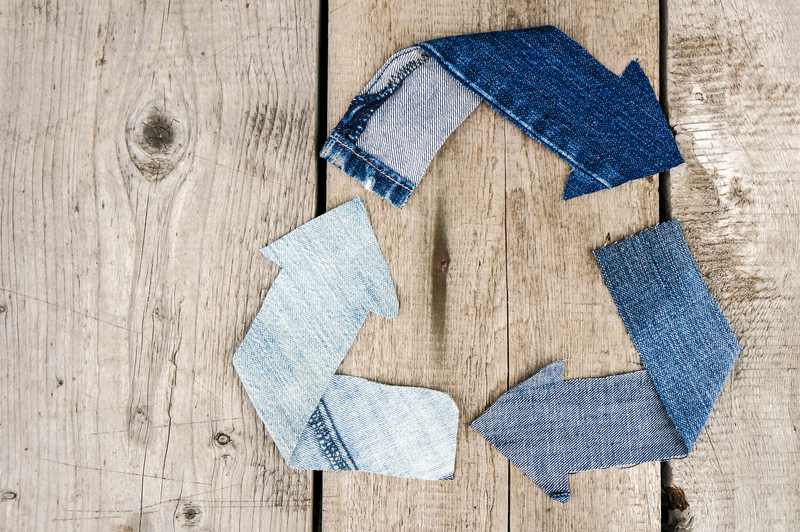How to Tackle Bulky Waste Items Without Breaking the Bank
Bulky waste disposal can be a major headache for homeowners and tenants alike. From old furniture and mattresses to large appliances and garden debris, getting rid of oversized rubbish items isn't just physically taxing--it can also be expensive. Fortunately, there are several budget-friendly ways to manage these items without sacrificing convenience or environmental responsibility. This comprehensive guide will walk you through cost-effective bulky waste disposal options, tips to minimize expenses, and sustainable practices for handling large trash items.
Understanding Bulky Waste: What Qualifies?
Before diving into affordable bulky waste solutions, it's important to pinpoint what's considered bulky waste. Typically, these are items too large or heavy to be collected by your regular curbside trash service. Common examples include:
- Couches, sofas, and armchairs
- Tables, wardrobes, and beds
- Refrigerators, freezers, washers, and dryers
- Large televisions and entertainment centers
- Mattresses and box springs
- Outdoor furniture and equipment
Properly identifying your bulky waste is the first step towards disposing of it responsibly and on a budget.

Why Is Bulky Waste Disposal So Expensive?
Disposing of large rubbish items tends to be pricier due to multiple factors:
- Special equipment or vehicles required for collection and transport
- Extra fees at landfills or recycling centers for oversized items
- Additional labor for loading, lifting, and sorting
- Environmental compliance requirements (especially for appliances and electronics)
However, with some research and creativity, you can save money on bulky waste removal while ensuring your waste is handled ethically.
Budget-Friendly Strategies for Bulky Waste Disposal
1. Check Municipal or Local Authority Collection Services
Many city councils and municipalities offer free or low-cost bulk waste pickups for residents. These services often operate on a scheduled basis (such as quarterly or by request) and may have restrictions like:
- Limits on the number of items per collection
- Rules about item types (e.g., no hazardous materials)
- Strict dates and timeframes
Contact your local authority or visit their website for current guidelines--taking advantage of public services is one of the cheapest ways to get rid of bulky waste.
2. Leverage Community Clean-Up Events
Many neighborhoods, councils, or nonprofit organizations host community clean-up days or free collection events for large household items. These are often publicized locally and offer a fantastic, cost-free way to get rid of bulk waste. Mark these dates on your calendar and prepare your items in advance.
3. Donate Items in Good Condition
If your bulky items are still usable, donate them to charity shops, shelters, or reuse organizations. Many nonprofits, such as Goodwill, Habitat for Humanity, and local furniture banks, will collect qualified items for free. Donating not only keeps waste out of landfills but (bonus!) also helps people in need--it's the most sustainable bulky waste solution around.
4. Sell or Give Away Items Online
Online marketplaces like Facebook Marketplace, Craigslist, Freecycle, and Nextdoor make it easy to sell or give away large items just by posting a few photos and a description. If profit isn't your priority, simply list your item as "free for pickup"--many will gladly haul it away without cost to you.
5. Consider the Landfill or Recycling Center (Self-Haul)
If your local dump or recycling center accepts bulky items, consider hauling the items yourself to avoid the fees charged by private collection services. This works best if you have access to a truck or trailer and can handle the heavy lifting. Be sure to check:
- Accepted items and required pre-sorting
- Operating hours
- Applicable disposal fees
- Special requirements for electronics or hazardous materials
Self-hauling is often the cheapest bulky waste disposal method if you're physically able and have the right vehicle.
6. Share Costs with Neighbors (Bulk Up!)
If multiple households on your street are also looking to offload large rubbish, join forces! You can split the cost of hiring a skip (dumpster), arrange a shared pickup with a local junk hauler, or even coordinate a neighborhood clean-up event together. Pooling resources brings down the cost per item and encourages community spirit.
7. Upcycle or Repurpose Bulky Items
Get creative--before tossing anything, ask if it could serve a new purpose! With minimal investment, you can:
- Convert an old wardrobe into a garden shed or bookcase
- Turn a non-working washing machine drum into a fire pit
- Refinish tables, chairs, or cabinets for renewed use or decor
Upcycling is not only budget-friendly but also rewards you with unique, practical pieces for home or garden.
Comparing Professional Bulky Waste Removal Services
When other options don't fit, hiring a bulky waste removal service may be the best bet. Here's how to make this as affordable as possible:
- Request multiple quotes: Compare local providers based on cost, availability, and service scope
- Look for promotions or package deals: Some companies offer discounts for multiple items or bulk pickups
- Ask about what's included (loading, clean-up, recycling, disposal fees)
- Check for companies that offer reduced or free rates for items in usable condition
Tip: For appliances and electronics, check for certified e-waste recyclers--these may offer pick-up services at a reduced price, especially if parts can be salvaged.
Environmentally Friendly Bulky Waste Disposal
Handling large trash responsibly doesn't have to strain your wallet. When choosing a disposal method, prioritize those that emphasize recycling, reuse, and landfill diversion. Here's how:
- Recycle where possible: Many centers will accept metal and wooden furniture, white goods, and electronics for recycling.
- Separate materials beforehand: Items split into wood, metal, and plastic are easier (and sometimes cheaper) to recycle.
- Avoid fly-tipping: Illegal dumping can incur hefty fines and harm the environment.
By opting for green bulky waste solutions, you safeguard your local ecosystem and often save money through incentives and reduced tipping fees.
Real-Life Examples: Cutting Down Bulky Waste Removal Costs
Case Study 1: The DIY Donator
Sarah had a broken recliner and an outdated but functional dining set to remove. She contacted a local charity that offered free pick-up for furniture in usable condition. The recliner went to the recycling facility (with a small fee), and the dining set was picked up by the charity. She spent less than $10 overall, proving that combining methods can keep costs low.
Case Study 2: Neighborhood Skip Pooling
Several households on a block pooled funds to rent a skip for spring cleaning. By dividing the rental cost, each family spent less than they would have if hiring separate junk haulers. Not only did they save money, but they also turned the experience into a fun community event.
Case Study 3: Upcycling Success
Tom salvaged an old metal bed frame and fashioned it into a trellis for climbing plants in his garden. Instead of paying for disposal, he added value to his home and reduced waste.
Common Mistakes to Avoid (and How To Save)
- Not researching free community options: Many people overlook local services that could save significant money.
- Dumping illegally: This can result in fines far greater than any disposal fee--always dispose responsibly.
- Paying for services unnecessarily: As shown above, donation and resale options can keep costs to zero.
- Not bulk loading: Grouping items usually costs less per item than separate pickups.

FAQs on Tackling Bulky Waste Affordably
-
Is it illegal to leave bulky items on the curb?
Yes, unless your city offers curbside bulky waste collection on set days. Otherwise, items left out can result in fines. -
Can I put bulky waste in someone else's skip?
No, unless you have the skip owner's permission--it's considered illegal dumping. -
How do I dispose of large white goods?
Many appliance stores offer removal for old units when delivering new ones. Recycling centers also often accept these at reduced rates. -
Will charities take damaged furniture?
Only if it can still be used safely--heavily stained, broken, or infested items will be declined.
Conclusion: Save Smart, Dispose Responsibly
Tackling bulky waste on a budget doesn't have to mean taking shortcuts or adding to landfill. With a savvy combination of donation, resale, self-hauling, and local resources, you can clear out large rubbish items without breaking the bank. Be proactive: research your council's options, think creatively about reuse, and always prioritize sustainable disposal methods.
By following these tips, you'll end up with a clean space, a happy wallet, and a smaller environmental footprint.
Ready to get started? Make a plan, contact your local services, and tackle your bulky waste the affordable, responsible way today!
